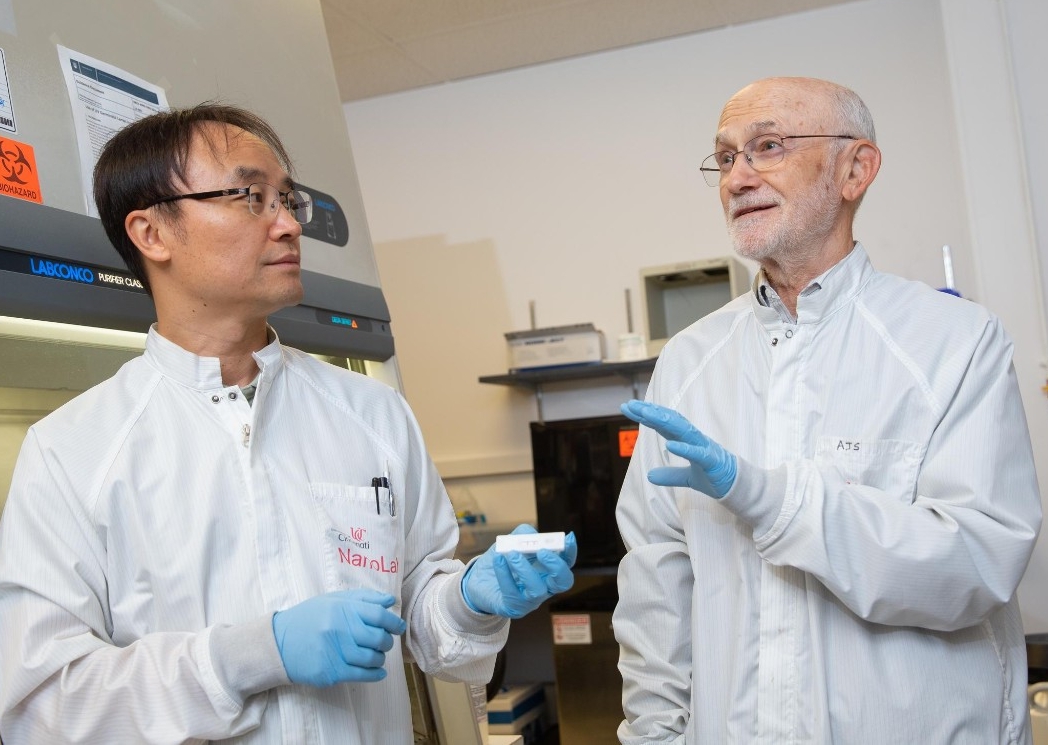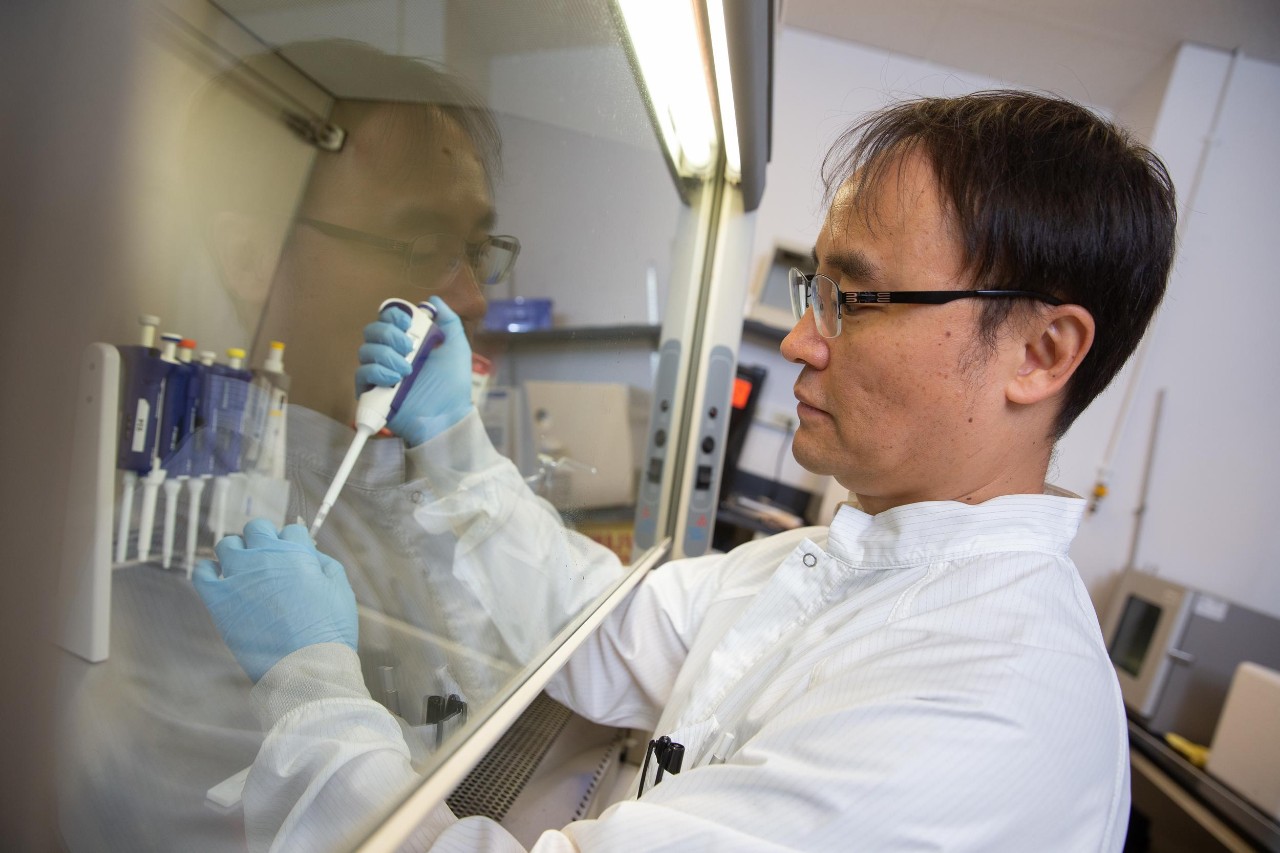Engineers at the University of Cincinnati have developed a new device that can warn consumers about early risks of tooth decay from diseases such as gingivitis and periodontitis.

Senior Research Associate Daewoo Han, left, and Distinguished Research Professor Andrew Steckl collaborated on a new at-home test for gingivitis in Steckl's NanoLab. Photo/Andrew Higley/UC Marketing + Brand
Steckl's research team has been exploring biosensing for various applications. They studied stress hormones in sweat in collaboration with the Air Force Research Lab at Wright-Patterson Air Force Base. Now they are studying saliva.
"There are good reasons to use saliva," he said. "It's relatively plentiful and easy to obtain through noninvasive methods. And saliva has a lot of important elements that can act as indicators of your health."
Bacteria from gingivitis can travel through the bloodstream, leading to cardiovascular disease and other serious health problems, Steckl said.
But saliva is a complicated biofluid, Han said.
"We wanted to target a biomarker in saliva. But saliva is hard to use," said Han, the study's lead author.
Researchers pretreated the sample using potato starch to remove a protein called amylase that could interfere with the test results. Their test uses antibodies that react to the endotoxins found in the bacteria.
Developing a sensor required precise selectivity and sensitivity, Steckl said.
"Daewoo worked very hard on many dead-ends before he had success," Steckl said. "I tell my students that research is search, search and re-search until you find the answer."

Senior Research Associate Daewoo Han has been developing an at-home test for periodontal disease at the NanoLab in UC's College of Engineering and Applied Science. Photo/Andrew Higley/UC Marketing + Brand
At-home health testing has been available for generations in niche uses such as detecting pregnancy. But the COVID-19 pandemic introduced a wide audience of consumers to the concept of monitoring their health with new technology.
The at-home testing industry is expected to generate $45 billion annually by 2031, according to Allied Market Research.
Steckl said he sees a lot of opportunity for new consumer products.
"Our results definitely show promise," Steckl said. "Sometimes it comes easy. Most of the time you have to persevere."
Featured image at top: UC Senior Research Associate Daewoo Han shows the gingivitis test. Photo/Andrew Higley/UC Marketing + Brand

UC Distinguished Research Professor and Ohio Eminent Scholar Andrew Steckl is exploring medical advancements made possible by new nanotechnologies. Photo/Andrew Higley/UC Marketing + Brand






